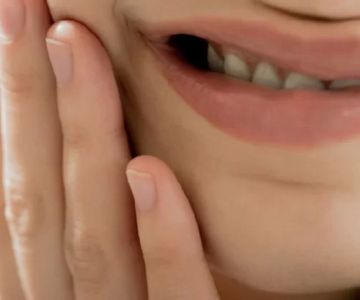What Is Oral Thrush and How Does It Develop?
Oral thrush, also known as oral candidiasis, is a fungal infection caused by an overgrowth of Candida yeast in the mouth. While Candida normally lives in small amounts in the mouth, throat, and digestive tract without causing harm, certain conditions can lead to an imbalance, resulting in thrush. Symptoms typically include white patches on the tongue, inner cheeks, roof of the mouth, and sometimes the throat, accompanied by redness, soreness, and difficulty swallowing.
This condition is fairly common and can affect people of all ages, especially infants, older adults, and those with weakened immune systems. Many wonder whether oral thrush is a sexually transmitted disease (STD), given that it can affect sensitive mucous membranes and sometimes appears after intimate contact. However, understanding the nature and transmission of oral thrush clarifies its relationship with sexual activity.
Is Oral Thrush Considered a Sexually Transmitted Disease?
Oral thrush is generally not classified as a sexually transmitted disease. It is primarily an opportunistic infection resulting from an imbalance in the natural flora of the mouth rather than direct sexual transmission. That said, Candida can be passed between partners through close contact such as kissing or oral sex, but this transmission is not the main cause of thrush.
It’s important to recognize that having oral thrush does not necessarily indicate a sexually transmitted infection. Various factors like antibiotic use, diabetes, smoking, poor oral hygiene, or immune suppression can contribute to developing thrush. In fact, many people with oral thrush have no history of recent sexual contact.
Doctors emphasize that while Candida can be shared, oral thrush develops when the yeast grows unchecked, not just by exposure alone. This distinction matters because managing thrush involves addressing underlying health or lifestyle factors, not solely treating it as an STD.
Common Causes and Risk Factors for Oral Thrush
Several conditions increase the risk of developing oral thrush. Use of antibiotics is one major cause, as these medications can disrupt the balance of good bacteria that normally keep Candida under control. Immunosuppressive diseases like HIV/AIDS or cancer treatments can also impair the body’s defenses, allowing the fungus to thrive.
Other contributors include diabetes, dry mouth caused by medications or aging, poor oral hygiene, smoking, and wearing dentures without proper cleaning. Babies and elderly adults are particularly susceptible due to weaker immune responses.
Understanding these risk factors helps individuals take proactive steps to prevent oral thrush or seek timely treatment if symptoms appear.
Recognizing the Symptoms of Oral Thrush
Oral thrush symptoms can vary but usually involve distinct white or cream-colored patches in the mouth. These patches may be painful or bleed when scraped. Patients often report a cottony feeling in the mouth, loss of taste, or a burning sensation.
In more severe cases, redness and soreness can extend beyond the mouth to the throat or esophagus, causing discomfort during eating or swallowing. Chronic oral thrush may also lead to cracked corners of the mouth, known as angular cheilitis.
Early recognition of these symptoms is key to preventing complications and ensuring effective treatment.
Treatment Options for Oral Thrush
Oral thrush is usually treated with antifungal medications, which can be prescribed as lozenges, mouth rinses, or oral tablets. Common antifungals include nystatin, clotrimazole, and fluconazole. Treatment duration depends on the severity and underlying causes.
In addition to medication, maintaining good oral hygiene, controlling blood sugar levels if diabetic, quitting smoking, and properly cleaning dentures can reduce recurrence risks. Some patients benefit from probiotics to restore natural microbial balance, though research is ongoing.
Case studies show that early intervention and lifestyle adjustments dramatically improve outcomes. For example, a patient with recurrent thrush found relief after improving denture hygiene and managing an undiagnosed diabetes condition alongside antifungal therapy.
Preventing Oral Thrush and Maintaining Oral Health
Preventing oral thrush involves a combination of good oral hygiene and addressing predisposing factors. Brushing teeth twice daily, flossing, and rinsing the mouth can reduce fungal buildup. Regular dental checkups allow early detection and management of oral infections.
Individuals using inhaled corticosteroids for asthma or COPD should rinse their mouth after use to prevent fungal growth. Those with diabetes or immunosuppressive conditions should work closely with healthcare providers to optimize their overall health.
Educating patients on the difference between sexually transmitted infections and opportunistic infections like thrush helps reduce stigma and encourages timely care.
Real-Life Experiences and Myths About Oral Thrush
Many people experience misconceptions about oral thrush, confusing it with sexually transmitted diseases or believing it is solely caused by poor hygiene. John, a 29-year-old from Atlanta, shared his story of persistent oral thrush misdiagnosed initially due to stigma around his sexual health. After proper medical evaluation, he learned his condition was linked to antibiotic use and stress, not sexual transmission.
His experience highlights the importance of awareness and open communication with healthcare professionals to receive accurate diagnoses and treatment.
Stories like John’s emphasize that oral thrush, while uncomfortable, is manageable and distinct from sexually transmitted infections, encouraging individuals to seek care without fear or shame.
Where to Find Expert Help for Oral Thrush
If you suspect you have oral thrush or want personalized advice, Dentistry Toothtruth provides trusted resources and expert dental care recommendations tailored to your needs. Professional evaluation ensures correct diagnosis and effective treatment plans, improving your oral health and overall well-being.
Understanding the facts about oral thrush empowers you to take control of your oral health confidently and avoid misinformation.



 Westgate Dental Arts3.0 (2 review)
Westgate Dental Arts3.0 (2 review) Coventry Family Dental4.0 (247 review)
Coventry Family Dental4.0 (247 review) Familia Dental3.0 (1028 review)
Familia Dental3.0 (1028 review) Dr. Daniel S. Fife, DDS4.0 (31 review)
Dr. Daniel S. Fife, DDS4.0 (31 review) Dentistry At Suburban Square: Michael I. Wollock, DMD4.0 (1228 review)
Dentistry At Suburban Square: Michael I. Wollock, DMD4.0 (1228 review) Comfort Care Dental4.0 (1156 review)
Comfort Care Dental4.0 (1156 review) The Importance of Oral Health Education During Pregnancy for a Healthy Pregnancy
The Importance of Oral Health Education During Pregnancy for a Healthy Pregnancy Why Skipping Dental Checkups Can Lead to Bigger Oral Health Problems
Why Skipping Dental Checkups Can Lead to Bigger Oral Health Problems Best Tips for Brushing Your Teeth Properly for Healthy Gums: Essential Techniques for Oral Health
Best Tips for Brushing Your Teeth Properly for Healthy Gums: Essential Techniques for Oral Health Advantages of Porcelain Dental Restorations
Advantages of Porcelain Dental Restorations How Can Diabetes Cause Tooth and Gum Problems? Preventing and Managing Oral Health Issues
How Can Diabetes Cause Tooth and Gum Problems? Preventing and Managing Oral Health Issues Healthy Habits for Promoting Good Oral Health and Hygiene: Tips for a Healthy Smile
Healthy Habits for Promoting Good Oral Health and Hygiene: Tips for a Healthy Smile